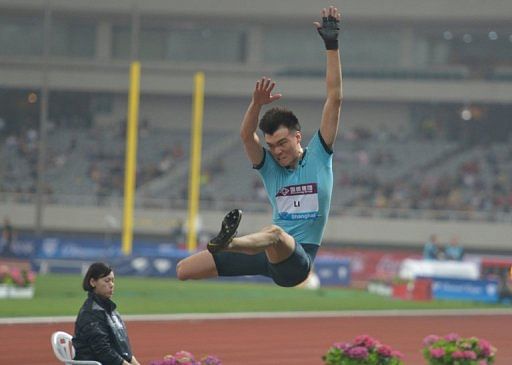
Pressure to reform mounts on China sports system
SHANGHAI (AFP) –
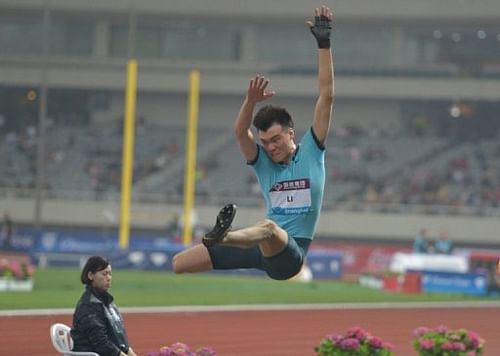
Li Jinzhe of China makes the winning jump in the men’s long jump event at the Diamond League athletics meeting in Shanghai, on May 18, 2013. Li is one of a new wave of foreign-coached track and field stars who are making China an emerging athletics force — but their independent attitude is putting pressure on the country’s intense state sports system to reform.
In front of thousands of fans in a cavernous Shanghai stadium, long jumper Li Jinzhe thundered down the track before soaring 8.34 metres to victory, sending his supporters into a patriotic frenzy.
Li is one of a new wave of foreign-coached track and field stars who are making China an emerging athletics force — but their independent attitude is putting pressure on the country’s intense state sports system to reform.
“It’s not a surprise. I expected to jump well,” said the 23-year-old after he beat a strong field including three previous Olympic champions at the Diamond League meeting earlier this month.
Under China’s rigid state sports system, many athletes believed to have potential are plucked from their families at an early age and put through gruelling training regimes with little relaxation.
It was a system that helped China top the medals table at the 2008 Beijing Olympics with 51 golds.
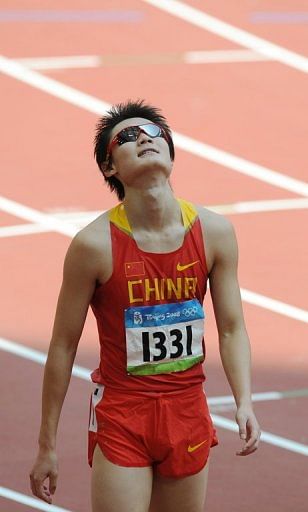
China’s Zhang Peimeng, pictured during the Beijing Olympic Games, on August 18, 2008. Zhang broke China’s 200m record with a time of 20.47secs in Shanghai earlier in May, only a month after he set a new national 100m mark in 10.04secs.
But as the focus shifts to China’s next showcase sporting event, the 2015 World Athletics Championships in the capital, experts say that less intense foreign coaching schemes actually yield better results.
Li trains regularly in the US under Loren Seagrave, who has worked with a number of Olympic champions, including Canada’s 100m sprinter Donovan Bailey and women’s 200m winner Pauline Davis-Thompson, from the Bahamas.
Seagrave has also coached star Chinese sprinter Zhang Peimeng — who broke China’s 200m record with a time of 20.47secs in Shanghai, only a month after he set a new national 100m mark in 10.04secs.
“Our training makes them experience a different culture from what they are used to, which forces them to open up, and this generates success,” Seagrave told AFP.
Zhang, 26, is now being lined up to be tutored by US coach John Smith, who has coached three Olympic gold medallists and the current 100m women’s world champion Carmelita Jeter, the second fastest woman of all time.
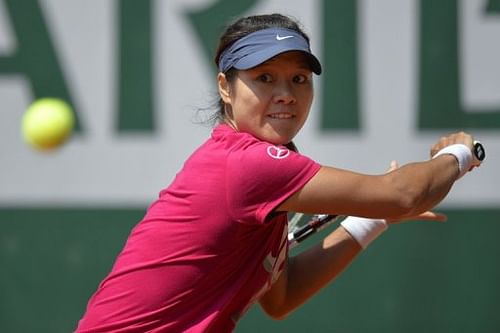
China’s Li Na, pictured during a training session on the eve of the start of the French Open tennis tournament, at the Roland Garros stadium in Paris, on May 25, 2013. Li won the 2011 French Open after she ditched the state system and recruited her own coaches.
There are also plans to send China’s long distance runners to Kenya and Ethiopia for specialist training.
Nonetheless Beijing is keen to limit its emerging talents’ exposure to outside influences, fearing that it could create a generation of athletes who compete for their own interests, rather than national glory.
Dutch former long-distance runner Jos Hermens, who now works with the China Athletics Association, said: “Now they are more and more getting (foreign) coaches involved, other people internationally involved, so there is progress, slow progress.
“I think they will improve, and they will have more medals in the future,” he added. “I see changes but they do usually go a little bit slowly in China, at least in sport, because it is a very conservative system.”
The new approach has helped China extend its reach beyond sports it has traditionally dominated — table tennis, badminton, diving, shooting, gymnastics and weightlifting.
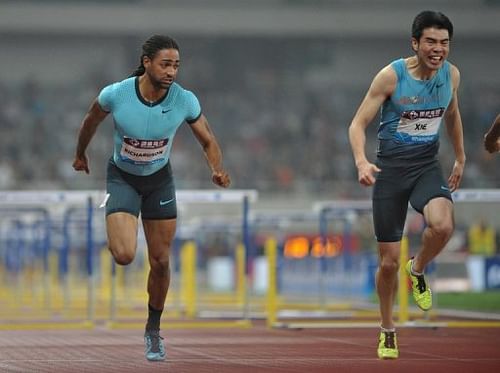
Jason Richardson of the US (L) and China’s Xie Wenjun compete in the 110m hurdles event at the Diamond League athletics meeting in Shanghai, on May 18, 2013. Many in China hope 22-year-old Xie will follow in Liu Xiang’s footsteps, after he came third in Shanghai with a personal best of 13.28sec.
It made a dramatic entrance as a swimming power last year, when stars such as teenager Ye Shiwen and Sun Yang dominated the Olympics with world record performances, helping China to five golds among 10 swimming medals.
Both have spent time training in Australia with top coaches, while others practise in the United States.
Some of China’s biggest sporting stars already operate outside state control, most notably tennis player Li Na and 14-year-old golf prodigy Guan Tianlang.
Li won the 2011 French Open after she ditched the state system and recruited her own coaches, and privately-trained Guan became the youngest golfer ever to make the cut at a major tournament at the Masters last month.
Li and Guan not only have the freedom to shape their own careers, they are also reportedly able to keep 65 percent of their winnings, whereas state-sponsored athletes only keep 12 per cent, with the remainder going to the authorities,
But athletics is not normally as lucrative as tennis and golf.
China’s greatest athlete Liu Xiang, who became a national hero when he claimed the country’s first Olympic track and field gold in the 110m hurdles at Athens in 2004, remained in the state system.
After suffering injury heartbreak at both the Beijing and London Games, he has again been ruled out for this season, with many reports in China doubting he will return. Some claimed that he failed to reach his potential because his coaches pressured him to race when he should have been recovering from injuries.
Many in China hope 22-year-old Xie Wenjun will follow in Liu’s footsteps, after he came third in the 110m event in Shanghai with a personal best of 13.28sec.
“China has a lot of young, talented athletes,” he told AFP afterwards. “From now onwards, I will start afresh, and try to do better in the upcoming races to showcase to the world my talent and the talent of young Chinese athletes.”
Hermens said he expected to see a mixture of both western and Chinese systems used in the coming years.
“I see a new generation that is more open, more transparent,” he told AFP. “Xie says he is shy, but he speaks English better than Liu Xiang. He is an open person, so the new generation is actually more looking into the world.”